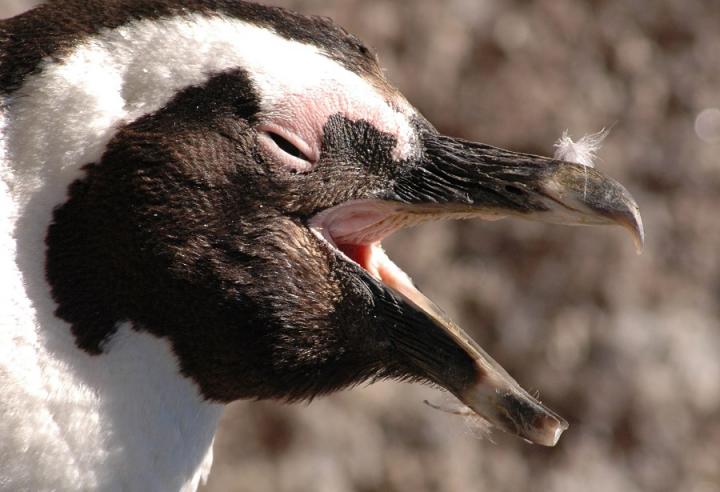
Credit: Photo by David Grémillet.
Industrial fisheries are starving seabirds like penguins and terns by competing for the same prey sources, new research from the French National Center for Scientific Research in Montpellier and the Sea Around Us initiative at the University of British Columbia has found.
In a study published today in Current Biology, researchers found that annual seabird food consumption decreased from 70 to 57 million tonnes between 1970 and 2010. Meanwhile, fisheries increased their catches of potential seabird prey from an average of 59 million tonnes in the 1970s and 80s to 65 million tonnes per year in recent years.
“Fisheries persist in starving a vanishing seabird community, like a boa tightening its grip on prey,” said David Grémillet, lead author of the study and a researcher at the French National Center for Scientific Research. “Despite the fact that the world’s seabird community is shrinking, the level of competition between seabirds and fisheries remained the same between the 1970-1980s and 1990-2000s.”
This diminished food supply is putting seabirds at risk – making them the most threatened bird group – with a 70 per cent community-level population decline in the past seven decades.
“Since the 1970s and 80s, we’ve lost a quarter of all penguins and nearly half of the terns and frigatebirds,” said Grémillet. “Meanwhile, seabird-fishery competition continues to increase in areas such as the Asian shelves, Mediterranean Sea, Norwegian Sea and the Californian coast.”
The researchers mapped where seabirds caught their prey, calculated how much and what they consume based on what is known about their diets and caloric intake, and compared that information against the Sea Around Us initiative’s global maps of fisheries catches of species targeted by both seabirds and fishing boats.
“In total, we analysed the behaviour of one billion individual seabirds across four decades, which is about 60 per cent of the world’s seabird population,” said Deng Palomares, co-author of the study and the Sea Around Us project manager at the University of British Columbia’s Institute for the Oceans and Fisheries. “Those that feed on squid, Antarctic krill and small ‘mid-water’ fish such as herrings and sardines are suffering the most.”
Palomares explained that urgent action is needed because not only are seabirds starving to death as they engage in unfair competition for food with massive vessels, but they are also getting tangled in fishing gears and on the large amounts of plastic waste floating on the world’s oceans.
“On top of this, they are threatened by oil pollution, the introduction of non-native predators to their colonies, the destruction and changes to their habitats by human activity and environmental and ecological changes caused by climate change. If we don’t do anything, seabird populations are going to collapse,” the Sea Around Us researcher said.
###
The paper “Persisting worldwide seabird-fishery competition despite seabird community decline” was published today in Current Biology.
Media Contact
Valentina Ruiz Leotaud
[email protected]
604-827-3164
Original Source
http://bit.




